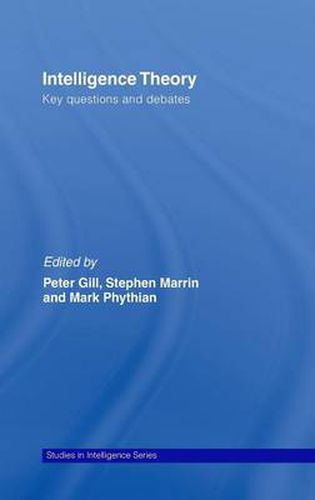Readings Newsletter
Become a Readings Member to make your shopping experience even easier.
Sign in or sign up for free!
You’re not far away from qualifying for FREE standard shipping within Australia
You’ve qualified for FREE standard shipping within Australia
The cart is loading…






This edited volume brings together a range of essays by individuals who are centrally involved in the debate about the role and utility of theory in intelligence studies.
The volume includes both classic essays and new articles that critically analyse some key issues: strategic intelligence, the place of international relations theory, theories of ‘surprise’ and ‘failure’, organisational issues, and contributions from studies of policing and democratisation. It concludes with a chapter that summarises theoretical developments, and maps out an agenda for future research. This volume will be at the forefront of the theoretical debate and will become a key reference point for future research in the area.
This book will be of much interest for students of Intelligence Studies, Security Studies and Politics/International Relations in general.
$9.00 standard shipping within Australia
FREE standard shipping within Australia for orders over $100.00
Express & International shipping calculated at checkout
This edited volume brings together a range of essays by individuals who are centrally involved in the debate about the role and utility of theory in intelligence studies.
The volume includes both classic essays and new articles that critically analyse some key issues: strategic intelligence, the place of international relations theory, theories of ‘surprise’ and ‘failure’, organisational issues, and contributions from studies of policing and democratisation. It concludes with a chapter that summarises theoretical developments, and maps out an agenda for future research. This volume will be at the forefront of the theoretical debate and will become a key reference point for future research in the area.
This book will be of much interest for students of Intelligence Studies, Security Studies and Politics/International Relations in general.